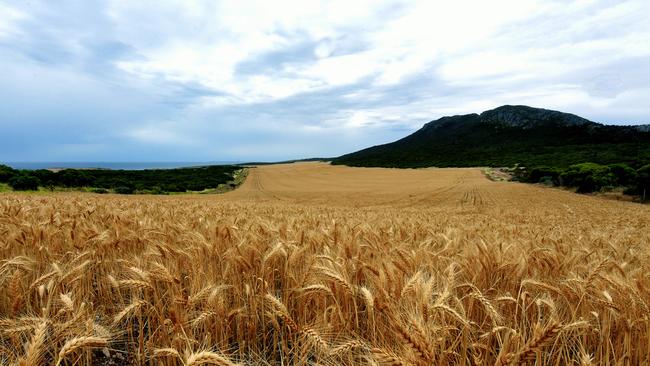Flinders University Professor explains climate change’s effect on SA if we limit warming to 1.5C
LIMITING global warming to 1.5 degrees above pre-industrial levels would make a “massive” difference in SA, Flinders University Professor Corey Bradshaw explains, following the release of the latest report from the Intergovernmental Panel on Climate Change.
LIMITING global warming to 1.5 degrees would make a “massive” difference in SA, Flinders University Professor Corey Bradshaw explains.
The latest report from the Intergovernmental Panel on Climate Change, released in Korea yesterday, calls for rapid action to limit global warming to 1.5C rather than 2C.
“It doesn't sound like a lot to the average person, but that 0.5C has massive implications for human health, food production, extreme climate events including drought and fire and flood,” he said.
“In South Australia we see that even under modest warming scenarios, half of our wheat growing capacity is gone by the end of century.
“Then we stand to lose our mangroves and our seaweed diversity, which are the basis of our marine ecosystem, so all the fish that we eat and all the aquaculture we do is pretty much dependent on these underwater forests.”

Across the board, limiting warming will reduce the chance of extreme events and make climate change more manageable, giving humanity a chance to adapt.
But it requires urgent action on a global scale, because we've already warmed 1C above pre-industrial levels. And we’re likely to reach 1.5C sometime between 2030 and 2052.
That means more extreme weather, rising sea levels, diminishing sea ice and disappearing coral reefs, but the consequences of greater warming are far worse.
The IPCC report draws on evidence from more than 6000 scientific references, compiled by 91 authors, to make the case for limiting warming.
It comes in response to a request from the United Nations Framework Convention on Climate Change (UNFCCC), when the Paris Agreement was adopted by 195 nations in 2015.
The report will be critical to the Katowice Climate Change Conference in Poland in December, when governments review the Paris Agreement to tackle climate change.
Rising to the challenge would require “rapid and far-reaching” transitions in land, energy, industry, buildings, transport and cities.
Global net human-caused emissions of carbon dioxide (CO2) would need to fall by about 45 per cent from 2010 levels by 2030, reaching “net zero” around 2050. That means any remaining emissions would need to be balanced by removing CO2 from the air. Such techniques are unproven at large scale and may carry their own significant risks.
“That sounds pretty ‘doom and gloom, but the point of this report is to show even those apparently small shifts downward from 2C to 1.5C of warming have massive benefits across the board for all of human society,” Professor Bradshaw said.
“We can’t be complacent about trying to limit warming as much as we can.”

